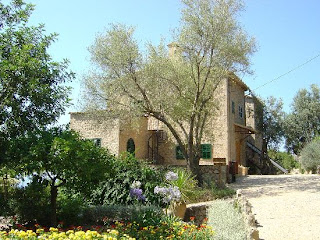Avui després de l'examen treballarem vocabulari sobre Pasqua (EASTER)
read more
Easter vocabulary

a)Copia al quadern aquestes dues noves paraules (Easter and Holy Week) com a títol.
b)Copia al quadern el vocabulari que trobaràs AQUÍ en anglès i castellà.
2. Continua aprenent sobre Easter. Llegeix el text que trobaràs al link de més abaix i:
a) contesta al teu quadern (en català) el que volen dir les següents expressions:
Easter bunny
Egg hunt
Egg rolling
b) Explica per què es relaciona el conill amb els ous de Pasqua.
Pots trobar el text AQUÍ.
3. A continuació trobaràs més Easter vocabulary:
a) Intenta adivinar quina paraula correspon al dibuix.
b)Quan acabis ves a Verifica i copia-ho al quadern (dibuix i paraula en anglès).
Troba el vocabulari AQUÍ.
4. Fes aquesta sopa de lletres sobre Easter vocabulary. Pitja AQUÍ.
5. Fes aquest puzzle sobre el Easter Bunny AQUÍ.

1. Aprèn vocabulari sobre Pasqua (Easter) i sobre la Setmana Santa (Holy Week).
a)Copia al quadern aquestes dues noves paraules (Easter and Holy Week) com a títol.
b)Copia al quadern el vocabulari que trobaràs AQUÍ en anglès i castellà.
2. Continua aprenent sobre Easter. Llegeix el text que trobaràs al link de més abaix i:
a) contesta al teu quadern (en català) el que volen dir les següents expressions:
Easter bunny
Egg hunt
Egg rolling
b) Explica per què es relaciona el conill amb els ous de Pasqua.
Pots trobar el text AQUÍ.
3. A continuació trobaràs més Easter vocabulary:
a) Intenta adivinar quina paraula correspon al dibuix.
b)Quan acabis ves a Verifica i copia-ho al quadern (dibuix i paraula en anglès).
Troba el vocabulari AQUÍ.
4. Fes aquesta sopa de lletres sobre Easter vocabulary. Pitja AQUÍ.
5. Fes aquest puzzle sobre el Easter Bunny AQUÍ.





















